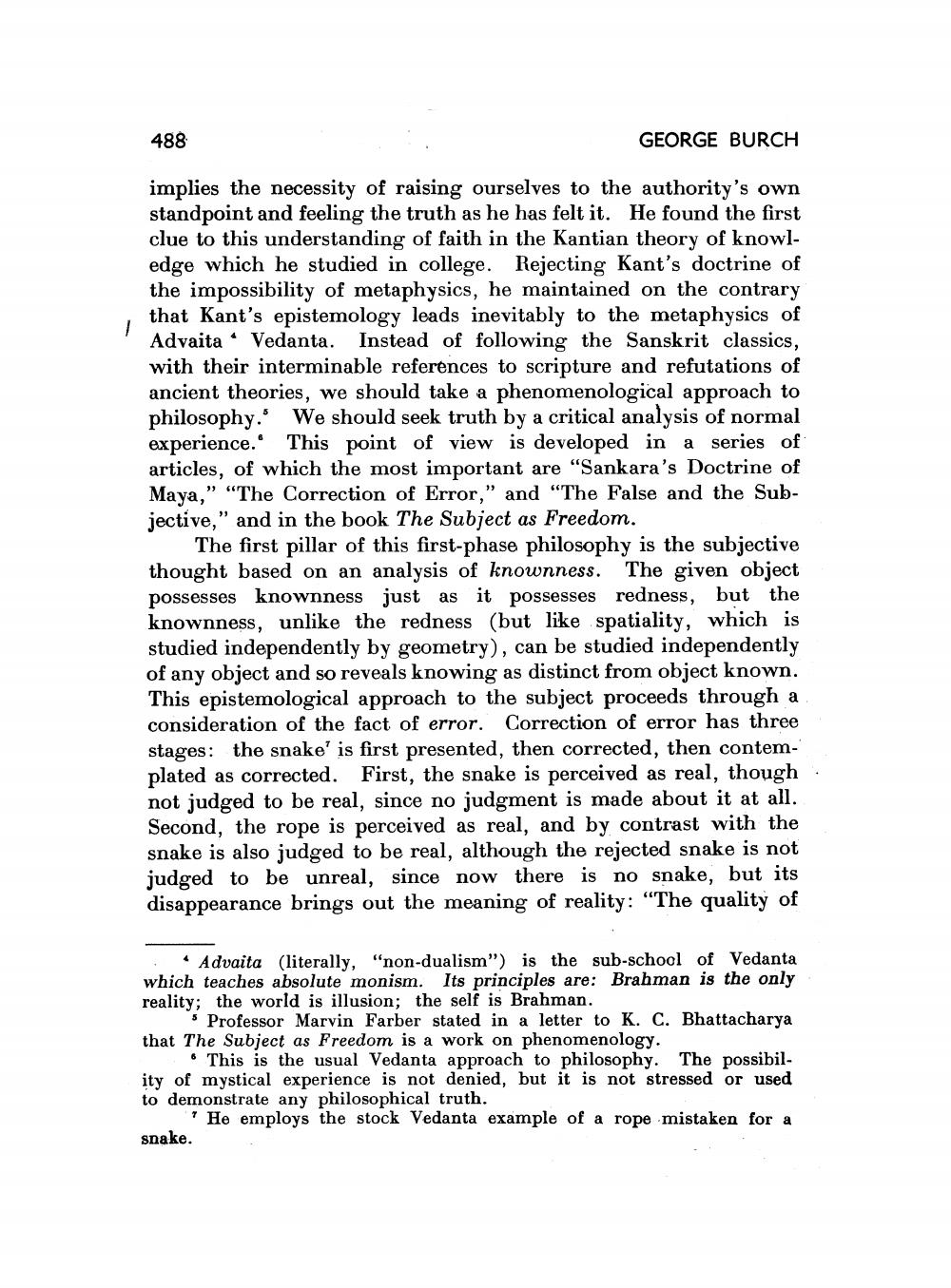________________
488
GEORGE BURCH
implies the necessity of raising ourselves to the authority's own standpoint and feeling the truth as he has felt it. He found the first clue to this understanding of faith in the Kantian theory of knowledge which he studied in college. Rejecting Kant's doctrine of the impossibility of metaphysics, he maintained on the contrary that Kant's epistemology leads inevitably to the metaphysics of Advaita Vedanta. Instead of following the Sanskrit classics, with their interminable references to scripture and refutations of ancient theories, we should take a phenomenological approach to philosophy. We should seek truth by a critical analysis of normal experience. This point of view is developed in a series of articles, of which the most important are "Sankara's Doctrine of Maya," "The Correction of Error," and "The False and the Subjective," and in the book The Subject as Freedom.
The first pillar of this first-phase philosophy is the subjective thought based on an analysis of knownness. The given object possesses knownness just as it possesses redness, but the knownness, unlike the redness (but like spatiality, which is studied independently by geometry), can be studied independently of any object and so reveals knowing as distinct from object known. This epistemological approach to the subject proceeds through a consideration of the fact of error. Correction of error has three stages: the snake' is first presented, then corrected, then contemplated as corrected. First, the snake is perceived as real, though not judged to be real, since no judgment is made about it at all. Second, the rope is perceived as real, and by contrast with the snake is also judged to be real, although the rejected snake is not judged to be unreal, since now there is no snake, but its disappearance brings out the meaning of reality: "The quality of
Advaita (literally, "non-dualism") is the sub-school of Vedanta which teaches absolute monism. Its principles are: Brahman is the only reality; the world is illusion; the self is Brahman.
Professor Marvin Farber stated in a letter to K. C. Bhattacharya that The Subject as Freedom is a work on phenomenology
• This is the usual Vedanta approach to philosophy. The possibility of mystical experience is not denied, but it is not stressed or used to demonstrate any philosophical truth.
He employs the stock Vedanta example of a rope mistaken for a snake.




